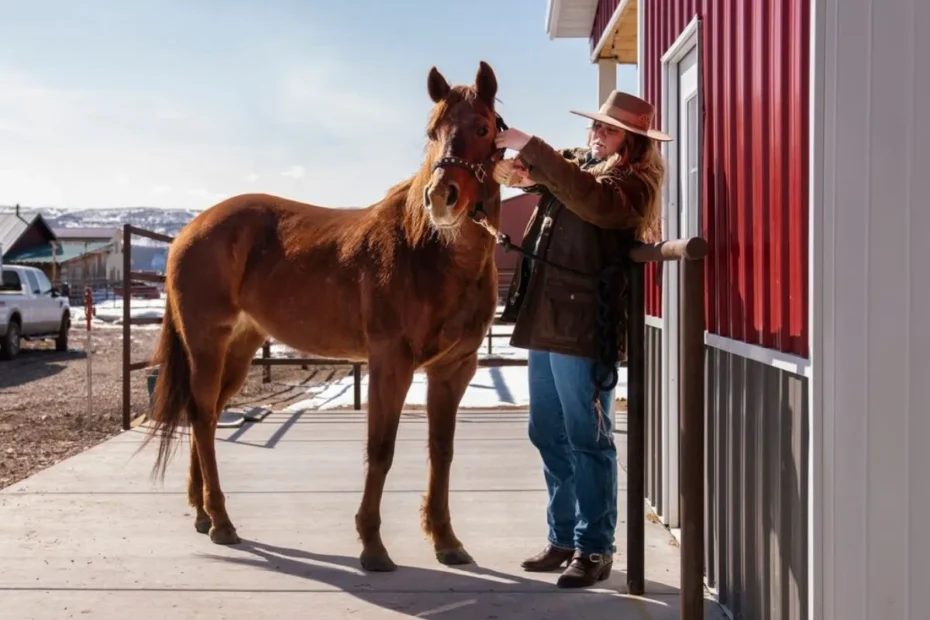Climate control in horse trailers is essential for the comfort and wellbeing of horses during transportation. With varying weather, a reliable climate control system ensures horses remain at a safe temperature.
Proper ventilation and air flow are critical to preventing heat stress and respiratory problems. Understanding how to maintain optimal conditions is crucial for horse health during travel.
In this article, we delve into the importance of climate control in horse trailers and provide comprehensive insights on maintaining ideal conditions.
Importance of Climate Control in Horse Trailers
Maintaining an optimal climate inside horse trailers is vital for the safety of the animals. Horses are sensitive to temperature fluctuations, and improper climate control can lead to severe health issues.
Ensuring that the interior temperature is kept within a safe range is not just about comfort but also about preventing conditions like heat stroke and hypothermia. Proper climate control mechanisms can make the difference between a safe journey and a hazardous one.
Effective ventilation systems are necessary to avoid the buildup of humidity and harmful gases. This not only helps in maintaining a cool environment but also prevents respiratory complications for the horses.
Key Components of an Effective Climate Control System
Ventilation Systems
A well-designed ventilation system is fundamental to managing the climate within horse trailers. Adequate air flow ensures that the internal environment remains fresh and free from excess humidity.
Reliable ventilation not only helps in temperature regulation but also minimizes the accumulation of harmful gases like ammonia, which can arise from horse waste and other organic materials.
The key aspects of a good ventilation system include:
- Regular air exchange to avoid heat build-up.
- Placement of vents to maximize air flow.
- Adjustable vents to manage different weather conditions.
Temperature Regulation
Maintaining the right temperature inside horse trailers is a challenging yet essential aspect of climate control. Horses are more comfortable in a temperature range of 10-20°C (50-68°F).
Installing temperature control devices like fans, heaters, and air conditioners can significantly help in regulating this. It’s important to continuously monitor these devices to ensure they function correctly.
During the hotter months, fans and air conditioning systems play a crucial role in preventing heat stress, while heaters help during colder months to avoid hypothermia.
Weather Adaptation
Another critical factor in climate control in horse trailers is the ability to adapt to various weather conditions. Weather patterns can be unpredictable, and being prepared for any scenario is crucial.
Trailers should be equipped with adjustable ventilation systems and temperature controls that can quickly adapt to sudden weather changes. Weather stripping and insulation also play a significant role in maintaining a consistent internal climate.
It’s essential to check weather forecasts before travel and prepare accordingly to ensure the safety of the horses during transportation.
Impacts of Poor Climate Control on Horse Health
Poor climate control can lead to significant health issues for horses. Inadequate ventilation and temperature regulation can result in heat exhaustion, dehydration, and respiratory problems.
Horses exposed to high temperatures can suffer from hyperthermia, which may lead to severe complications and even death. Conversely, low temperatures can cause hypothermia, affecting the horse’s immune system and overall health.
Humidity levels also play an essential role. High humidity can cause respiratory issues and skin infections, while low humidity can lead to dehydration and respiratory discomfort.
Best Practices for Effective Climate Control in Horse Trailers
Maintaining a safe and comfortable environment inside horse trailers requires following certain best practices. Implementing these recommendations helps in ensuring the horses’ wellbeing during transit.
Regular maintenance of the ventilation system is crucial. This involves cleaning vents, checking for blockages, and ensuring the system is in good working condition.
Monitoring the temperature inside the trailer during travel helps in making necessary adjustments. Using advanced climate control systems with automated sensors can aid in maintaining consistent conditions.
- Ensure proper insulation to maintain a stable internal temperature.
- Regularly check the weather forecast and prepare accordingly.
- Use high-quality fans and heaters for effective temperature regulation.
Safety Measures During Transportation
Ensuring the safety of horses during transportation involves more than just good climate control. Various other measures contribute to a safe travel experience for the animals.
Properly securing the horses within the trailer is essential to prevent injuries during movement. Padded sidewalls and non-slip flooring can help in reducing the impact of bumps and turns.
Regular stops to check on the horses’ condition and provide water are vital. This helps in detecting any signs of distress early and taking necessary actions.
Advanced Technologies in Climate Control
The advancements in technology have introduced innovative solutions for climate control in horse trailers. Smart systems that can monitor and adjust temperature and humidity levels in real-time have become increasingly popular.
These systems come equipped with sensors that provide data on the internal environment, allowing for automatic adjustments. This real-time monitoring ensures that the conditions inside the trailer remain optimal at all times.
Additionally, integrating these systems with mobile applications allows for remote monitoring, giving horse owners peace of mind during transportation.
Conclusion
Effective climate control in horse trailers is indispensable for ensuring the health and safety of horses during transportation. Adequate ventilation, temperature regulation, and adaptability to weather conditions are the pillars of a good climate control system.
Following best practices and utilizing advanced technologies can significantly enhance the travel experience for horses. Ensuring proper maintenance and preparation can mitigate the risks associated with poor climate control.
Investing in reliable climate control systems not only ensures the welfare of the horses but also provides peace of mind to the owners. Always prioritize the comfort and safety of the horses for a smooth and stress-free journey.
For more insights and updates on horse transportation, subscribe to our newsletter. Stay informed and ensure the best care for your horses.
Frequently Asked Questions
What is the ideal temperature range for horse trailers?
The ideal temperature range for horse trailers is between 10-20°C (50-68°F) to ensure the comfort and safety of the horses.
How often should I check the ventilation system?
Regular checks of the ventilation system are recommended before every trip to ensure they’re functioning correctly and free from blockages.
What should I do if my trailer doesn’t have an advanced climate control system?
Even if your trailer lacks advanced climate control, you can still maintain good ventilation, use portable fans, and monitor the temperature manually.
How can I ensure my horses stay hydrated during transport?
Make regular stops to provide water and check on the horses’ condition. Dehydration can be a significant risk during transportation.
Are smart climate control systems worth the investment?
Yes, these systems offer real-time monitoring and automatic adjustments, ensuring optimal conditions for the horses and providing peace of mind for the owner.

